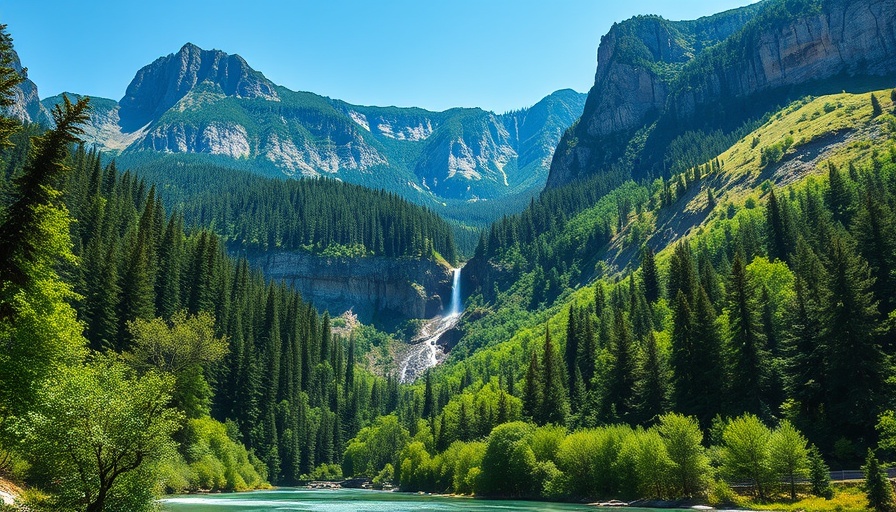
Big Beautiful Bill: A Controversial Proposal Impacting Western Lands
The Senate's upcoming vote on the “Big Beautiful Bill” has ignited a fierce debate across the western United States. With a potential sale of up to 3 million acres of public land, including notable areas in California such as Yosemite and Lake Tahoe, advocates argue this could bolster housing developments and energize economic growth. However, the criticisms from environmentalists and local communities are potent and stirring.
Concerns Over Public Land Sales
Senator Mike Lee from Utah, a key supporter, believes that the bill effectively transfers land management to parties better suited for development, claiming it could generate $10 billion for the federal government. Yet, many are wary of these intentions, fearing that once the land is sold, access is irretrievably lost. Representative Ryan Zinke's strong opposition to the bill's land sale provision underscores these concerns as he foresees a grim future for public lands if the bill passes.
Environmental Impact and Future Access
Environmental groups like Unite 4 Parks have expressed alarm at the sweeping nature of the proposed sales. Deanna Wulff from the group emphasized the risk of losing access to key landscapes for recreation and conservation. With 3 million acres at stake, the implications reach far beyond just real estate; they threaten the ecosystem and the ability for generations to enjoy these natural treasures.
Who Will Benefit?
The bill opens up acquisition possibilities to any interested party, raising concerns that wealthy individuals and corporations will have an unfair advantage over local governments unable to compete financially. Michael Carroll from the Wilderness Society highlights a troubling aspect: although capped at 3 million acres, there are potentially 258 million acres that could be targeted in future legislative sessions.
Political Climate and Opposition
As the political landscape heats up, California Senator Adam Schiff has vowed to oppose the bill vigorously. His stance reflects a growing concern among Californians about the sustainability of their natural environments against the push for economic development.
As we approach the decisive vote by July 4, the ramifications of the “Big Beautiful Bill” extend far beyond economic forecasts; they touch upon fundamental issues of environmental stewardship and access for future generations. Now is the time for citizens to engage with their representatives and voice their opinions on this critical legislative proposal.
 Add Row
Add Row  Add
Add 




 Add Row
Add Row  Add
Add 

Write A Comment